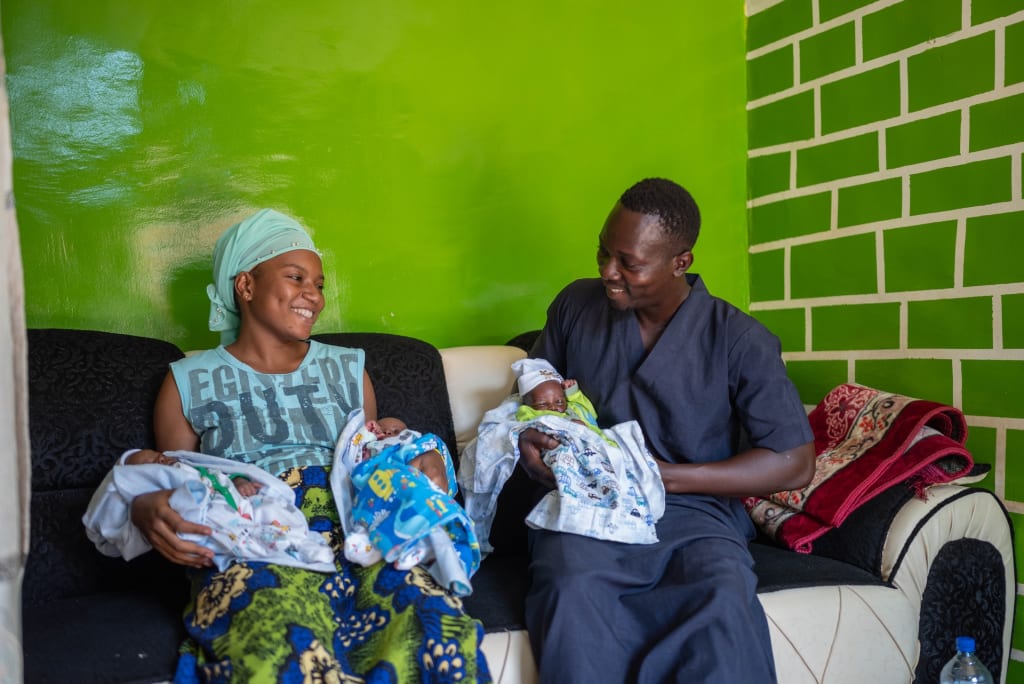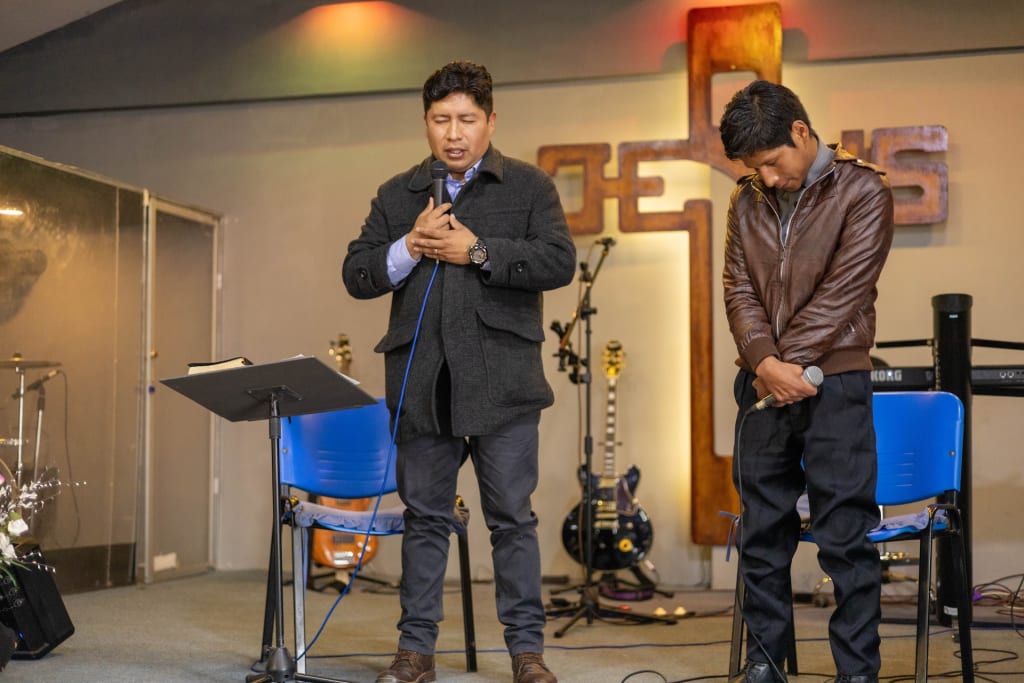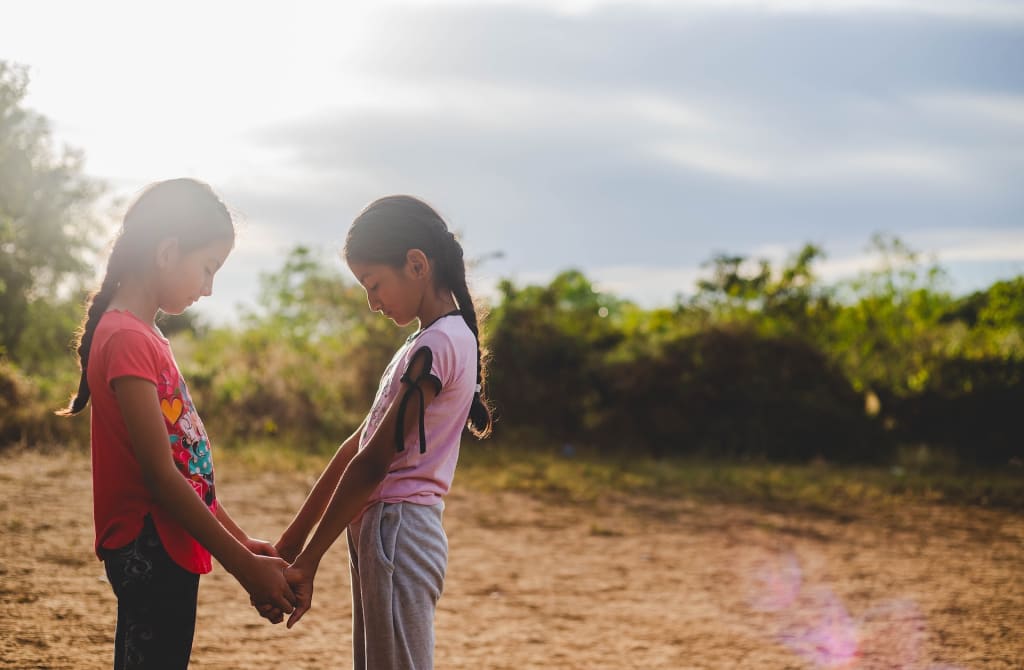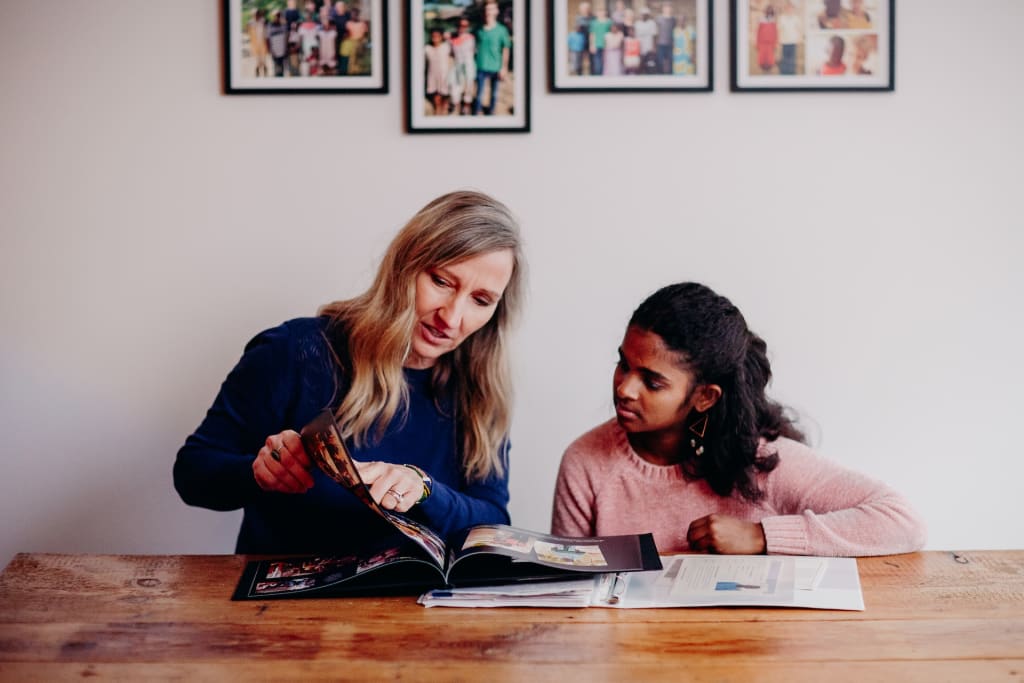
In case you missed it—read the first part of Rachel’s story of moving with compassion.
In Part One of this story, we met Rachel—a mother and Compassion supporter whose decision to sponsor a boy named Stiven in Honduras ignited a powerful movement of compassion in her life, her family and her church community. What began as a simple step of faith transformed her understanding of generosity, purpose and connection.
In this next part of her story, we see how advocacy deepened Rachel’s journey through joy and heartbreak, through giving and grieving. As Rachel continues to walk alongside Stiven and his family, she reminds us that advocacy is not only about speaking up but about showing up with compassion when it matters most.
Rachel’s relationship with Stiven didn’t remain surface-level. Over the years, the simple act of writing letters grew into something deeply personal. Their journey together brought both joy and sorrow—and through it all, Rachel and her family moved with compassion in powerful ways.
Part Two: Heartache, hope and a deeper call to compassion

A couple of years later, Stiven sent us an exciting letter. He was going to be a big brother! As the time came for the baby to arrive, I wrote asking for updates. Stiven responded with no mention of the baby. I tried again, now concerned. In the next letter, we learned the baby had died.
Heartbroken, I called the Compassion Canada office and begged for details, wondering if there was anything we could do. A couple weeks later we learned that Stiven’s mom had given birth to a little girl with serious heart complications. After a few days in the hospital, the baby sadly passed away.
The Compassion representative explained that the local church and the Compassion centre were offering support to the family and should Stiven’s mother become pregnant again, she’d also receive prenatal care. Then, as per our request, the representative presented us with some needs the family had shared. They could use a proper bed for Stiven, a new stove and extra money for food.

My mind was racing. I wanted to agree immediately, but how much would it all cost? I knew roughly what it would take to buy this in Canada, but what about Honduras? As I listened to the breakdown of each item, I could hardly believe my ears. It came to a total of a mere $24.46. Would I consider rounding up to an even $25.00? With a shaky voice, I responded with a most definite yes.
I can remember sitting in church as a young adult and learning about the gifts of the Spirit. When the pastor began talking about the gift of giving, I inwardly shuddered. Who would want to give away what you worked so hard for? Now having tasted the sweet satisfaction that comes with giving, I pray God increases that gift in me.

I believe God desires to give everyone a burden for someone or something. Maybe you are drawn to lonely shut-ins or those in hospice care. Perhaps you are passionate about faith-based rehab programs. Whatever holy discontent God has placed within you, it’s His invitation to do something about it, to partner with Him to bring a bit more of Heaven to earth.
When we choose to invest our money, time or talents into something greater than ourselves, we also benefit. Jesus said that it was more blessed to give than to receive (Acts 20:35). Hebrews 13:16 reads, “And do not forget to do good and to share with others, for with such sacrifices God is pleased.” In His ultimate wisdom, God created us so that when we look to fulfill the needs of those around us, we too are fulfilled as we experience His pleasure. God’s generosity allows us to experience joy through our generosity! As such, a decision to give is an opportunity to receive, thanks to our God, whom we can never out-give.
“Freely you have received; freely give.” (Matthew 10:8b)
From the heart: Rachel on giving, grief and moving with compassion
Compassion Canada: Walking with a child through both joy and sorrow is a powerful way to move with compassion. When Stiven shared the joy of becoming a big brother—and later, the heartbreak of his baby sister’s passing—how did those moments deepen your connection with him?
Rachel: I think this experience deepened our connection not only with Stiven, but also with his parents. We celebrated with them when we heard the news of a new sibling and grieved with them as they lost their little girl. Instead of mainly praying for Stiven, we were praying for his parents as well, and prayer is a powerful way to bring about a heart connection to someone.

CC: When Stiven’s family faced urgent needs, you took immediate action. What did it mean to you to be able to provide a bed, a stove and food—not just to help, but to be part of their journey?
Rachel: Due to the distance and language barrier, we felt helpless in their time of loss, so we were grateful for the chance to do something for the family. It was also very humbling to learn we could make their lives so much easier for just $25. It was a defining moment for me as I realized how much I truly had and the difference even a portion of that could make in someone else’s life.
CC: You’ve described generosity as something that once felt daunting. What changed for you over the years and how did giving become a movement in your life rather than just a one-time act?
Rachel: Things really began to shift after I read Randy Alcorn’s book, The Treasure Principle. I started to view my money and possessions through Jesus’ words to store up our treasures in Heaven. I also began to see that I needed much less than what society was telling me. Blogger Joshua Becker introduced me to the practice of minimizing the unnecessary to make room for the important. The more I immersed myself in these ideas, the more rewarding it became to give rather than receive and the more I realized I had to give.
CC: We also know that your heart for sponsorship grew and became a way your church loves to engage, too. When your church embraced sponsorship, how did it feel to see others move with compassion?
Rachel: It has been exciting to watch our church so readily embrace child sponsorship! Over the past decade, more than 500 children have been sponsored through our Compassion Sundays, as many people have caught the vision of the difference child sponsorship makes. Our church now sponsors a Survival program in Guatemala and we will be taking our first group of people to visit the children they sponsor from this program in 2026. We also created a special feature wall in our lobby where we celebrate and promote child sponsorships with photos of the children our church members sponsor.

CC: You talk about God placing a “holy discontent” in our hearts—the kind that compels us to act. What would you say to someone who feels that stirring but isn’t sure how to move with compassion?
Rachel: Pray about it! I believe God loves to answer those types of prayers! Every journey begins with a first step and even just those first few steps can help bring connections, education, opportunities and greater clarity. When you follow God’s leading, you’ll end up in the right place.
Rachel’s story reminds us that advocacy isn’t reserved for platforms or stages—it happens through prayer, relationships and obedience to God’s stirrings in our hearts. Whether through writing a letter, giving generously or inviting others to sponsor children, every action we take has the power to bring hope to others and transform us in the process.



